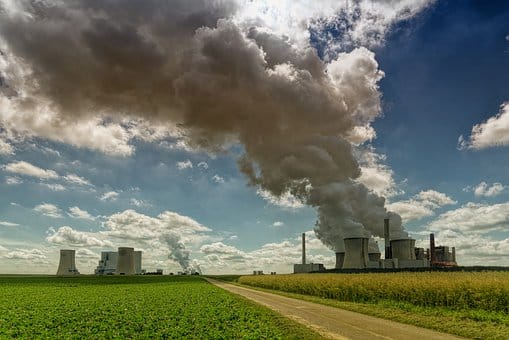U.S Energy Department Invests $43 Million in Industrial Heat Decarbonization Projects

The U.S. Energy Department on Oct. 8 announced $43 million in funding for novel decarbonization technologies to lower energy use and emissions across industrial subsectors. The department selected 16 projects for a $38 million funding opportunity focused on cross-sector technologies and five projects in collaboration with the Electrified Processes for Industry without Carbon (EPIXC) Institute.
Heating processes in industrial sectors, particularly manufacturing and steel, are an abundant source of emissions. In 2020, industrial heating was responsible for 30 percent of energy-related carbon emissions and one-third of the country’s primary energy consumption. As emissions from industrial heating affect multiple sectors, decarbonization solutions to be tailored for use across various industries.
The EPIXC selections – $5million investment in five projects – will focus on research, development, and scaling of novel electric heating technologies. The projects will reduce emissions, boost energy efficiency, and accelerate industrial decarbonization by electrifying process heat, the largest contributor to industrial emissions.
The 16 projects selected under the cross-sector technologies funding program will focus on three topic areas: Electrification of Industrial Heat, Efficient Energy Use in Industrial Systems, and Decarbonizing Organic Wastewater and Wet Waste Treatment. The selected projects are discussed below:
- The Electrification of Industrial Heat category chose solutions that use electrification or laser technology instead of traditional heating processes. The largest award winners in this category were Nevada-based Blue Mountain Energy which secured $3 million, and California-based Rondo Energy which secured $2.99 million.
- Blue Mountain Energy’s project was to develop and test a high-efficiency, oil-free industrial heat pump, featuring a patented heat exchanger, an oil-free expansion valve, and compressor. Rondo Energy’s project was to develop an advanced heat battery with an advanced heating element.
- The Efficient Energy Use in Industrial Systems category chose solutions focusing on increasing energy efficiency and reducing energy consumption. The University of Buffalo’s Research Foundation for SUNY secured $3 million in this category. The project was to develop and scale an alternative to thermal separations using solvent- and heat-resistant carbon-doped titanium oxide membranes.
- The Decarbonizing Organic Wastewater and Wet Waste Treatment awarded projects that aim to reduce emissions and energy consumption in wastewater and wet waste treatment. The Philadelphia Water Department secured almost $2.5 million for their project using autothermal pyrolysis for converting wastewater biosolids into biochar and gas. Another selected project, which secured $2.2 million, was Louisiana State University’s project to use photocatalytic disinfection to reduce nitrous oxide emissions.
The projects will support the goals of the department’s Industrial Heat Shot initiative aimed to advance cost-effective industrial heat decarbonization technology that can lower greenhouse gas emissions by 85 percent by 2035. With this target achieved, the U.S. industrial sector would be on track to decrease 575 million metric tons of its carbon-equivalent emissions by 2050.
EnerKnol Pulses like this one are powered by the EnerKnol Platform—the first comprehensive database for real-time energy policy tracking. Sign up for a free trial below for access to key regulatory data and deep industry insights across the energy spectrum.
ACCESS FREE TRIAL